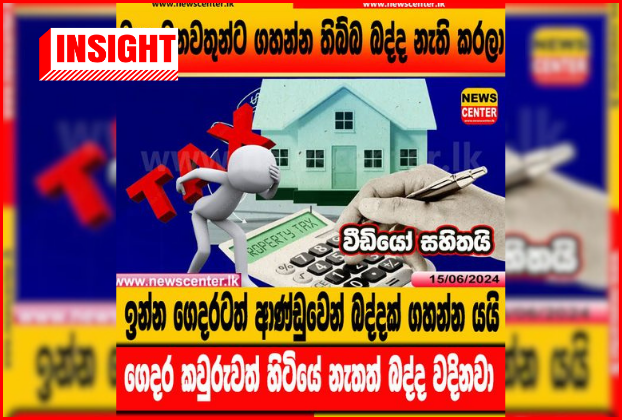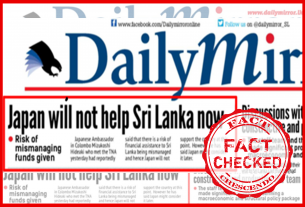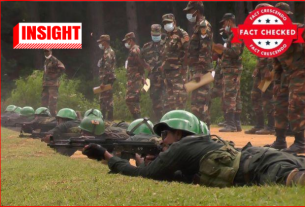Subscribe to our WhatsApp Channel
After recovering from its most severe economic crisis since gaining independence, Sri Lanka has implemented numerous economic reforms and taxation measures to stabilise its economy. However, during this challenging period, social media has become a breeding ground for misleading posts and misinformation about these reforms. This misinformation has contributed to confusion and unrest among the public, complicating the government’s efforts to navigate the country through its economic recovery.
Social Media Posts
Social media posts imply that the Sri Lankan government will impose a new “imputed rental income tax” on all households, including owner-occupied and vacant residential properties, starting April 2025. These posts suggest that this proposal comes from the International Monetary Fund (IMF) to help increase state revenue.
Explained
IMF Report:
The IMF’s second review report under the Extended Fund Facility to Sri Lanka highlights the importance of this tax in sustaining revenue mobilisation efforts. According to the report, the property tax was initially planned for 2025 but faced institutional impediments. Alternatively, the IMF suggests an imputed rental income tax on owner-occupied and vacant residential property, slated for introduction by April 1, 2025. The report notes that this tax will include an exemption threshold and a graduated tax rate schedule to ensure fairness. The report can be reached here. A video on this can be found here.
Finance Ministry Statement:
The Sri Lankan Finance Ministry has also issued a press release regarding this proposed tax. The statement clarifies that the property tax is in an advanced stage of design, making it premature to outline specific details of rates and thresholds. However, the ministry emphasises that the tax will target high-wealth individuals rather than average-income earners. This will be achieved through a suitable tax-free threshold, focusing on very high-value properties or multiple properties owned by wealthy individuals.
The Finance Ministry clarifies that the design of this tax will ensure appropriate set-off mechanisms to avoid double taxation and any elements that distort economic incentives and that it would aim to contribute 0.2% of GDP by 2025 and 0.4% by 2026.
President Ranil Wickremesinghe’s Remarks:
President Ranil Wickremesinghe, speaking in parliament, confirmed that the new tax would have a very high enforcement threshold, ensuring that 90% of households would not fall under this tax category. He reiterated that the tax is designed to affect primarily high-income families. Report on this here.
Ravi Karunanayake also clarified that this imputed rental income is not intended for the majority of Sri Lankans and that it would impact only luxury house owners, amounting to about 1-1.5 lakhs of citizens; hence, there’s no need to portray misleading narratives.
However, Harsha De Silva, an MP from the opposition, expressed his concerns about the proposed taxes, stating that there is a lack of clarity on how these new measures would be implemented; hence, there is no guarantee that even general households would not be taxed.
Follow us and stay up to date with our latest fact checks.
Facebook | Twitter | Instagram | Google News | TikTok

Title:Is Sri Lanka introducing a new imposed rental income tax on all owner-occupied and vacant residential properties from April 2025?
Fact Check By: Fact Crescendo TeamResult: Insight






